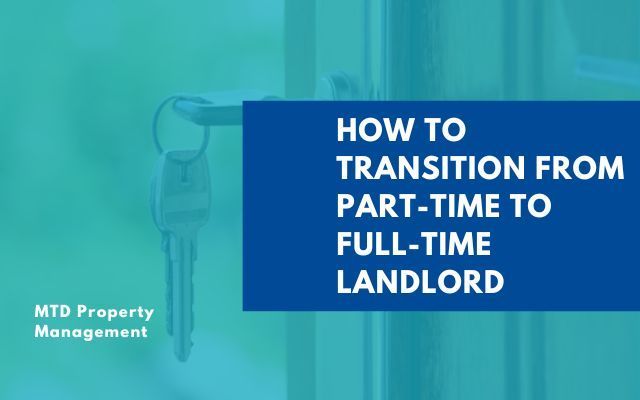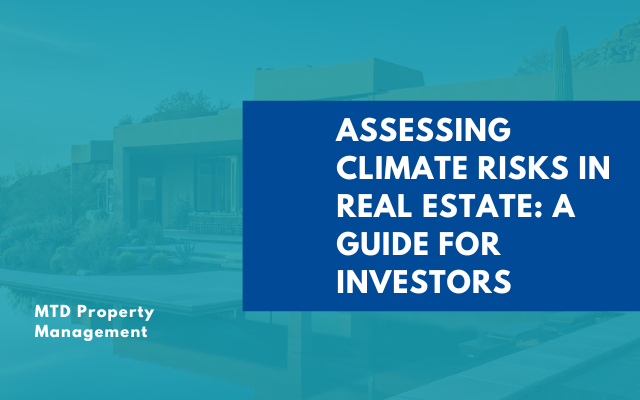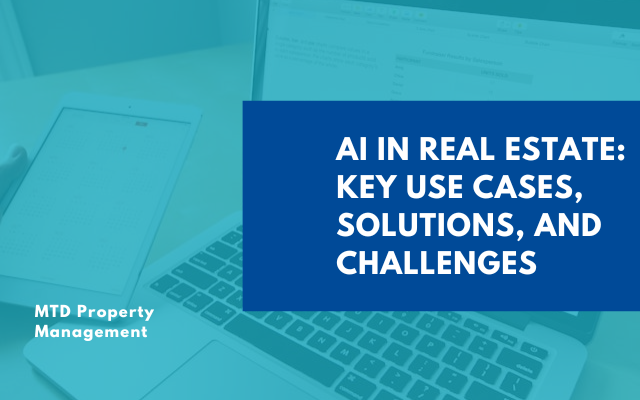How to Transition from Part-Time to Full-Time Landlord

Are you ready to take the leap from being a part-time landlord to a full-time landlord? If you've been successfully managing your rental properties on the side and are now thinking of making real estate your full-time job, you're in the right place!
Transitioning from part-time to full-time landlord status is an exciting journey that comes with its own set of challenges and opportunities.
In this comprehensive guide, we'll walk you through the essential steps and strategies to help you smoothly navigate this transition. Let’s dive in!
Essential Areas of Focus for Full-Time Landlords
Here’s a list of some of the basic responsibilities a full-time landlord can expect. Fully understanding these responsibilities equips you for a seamless transition, setting the stage for a proficient property management operation.
- Building strong relationships with tenants: A must-have skill is forging strong relationships with tenants through prompt responses to inquiries, conflict resolution, and open dialogue.
- Streamlining rent transactions: This involves not just collecting rent on time but also managing security deposits and addressing any financial disputes.
- Ongoing property upkeep: Regular property inspections, timely repairs, and emergency maintenance are part of the package.
- Regulatory alignment: Be up-to-date with property-related laws, ensure your leases are legally sound, and address any tenant legal issues proactively.
- Mastering financials: Proper budgeting, tracking revenue and expenses, and keeping your investments profitable is key.
- Effective marketing and tenant screening: Promote open units effectively, carry out thorough background checks, and make the tenant screening process as seamless as possible.
- Minimizing vacancy rates: Quick property turnarounds and effective tenant retention methods are vital in reducing vacancy periods.

A 5-Step Guide to Transition from Part-Time to Full-Time Landlord
Transitioning to a full-time landlord can be a rewarding move that offers increased income and greater control over your rental properties. However, it's important to plan the transition carefully to ensure a successful shift. This easy 5-step guide will help landlords make this transition effectively.
Step 1: Assess Your Financial Situation
Before making the leap to full-time landlordship, it's crucial to have a clear understanding of your financial situation. Consider the following aspects:
- Personal expenses: Review your personal budget and expenses to ensure you can maintain your lifestyle without relying on part-time income.
- Property expenses: Analyze the costs associated with your rental properties, including mortgage payments, property taxes, insurance, maintenance, and utilities.
- Emergency fund: Build an emergency fund that can cover at least six months of personal and property expenses. This will provide a financial safety net in case of unexpected vacancies or repairs.
- Cash flow analysis: Calculate the rental income from your properties and compare it to your expenses. Ensure there is a positive cash flow to sustain your business and personal needs.
Step 2: Create a Comprehensive Business Plan

Transitioning to full-time landlordship means treating your rental properties as a business. A thorough business plan can guide your decisions and help you achieve your goals. Here's what to include:
- Goals and objectives: Clearly define your long-term goals, such as property acquisition targets, revenue milestones, and growth plans.
- Marketing and tenant acquisition: Outline strategies for attracting and retaining tenants, including marketing channels, tenant screening processes, and lease terms.
- Property management: Detail how you plan to manage your properties, including maintenance schedules, repair budgets, and property management software if applicable.
- Financial projections: Create financial projections that outline expected income, expenses, and potential profitability over the next few years.
- Exit strategy: Consider how you would exit the rental property business if necessary, whether through selling properties, passing them on to heirs, or other options.
Step 3: Legal and Tax Considerations
The transition to becoming a full-time landlord may come with legal and tax implications. It's crucial to consult with professionals who can provide guidance on these matters. Here's what to keep in mind:
- Legal structure: Consider whether forming a limited liability company (LLC) or another legal entity is beneficial for protecting your assets and managing liability.
- Tax planning: Work with a tax advisor to understand the tax implications of your transition and ensure compliance with local tax regulations.
- Insurance: Review your insurance policies and consider landlord-specific coverage to protect against property-related risks and liabilities.

Step 4: Streamline Property Management
As you transition, managing your properties efficiently becomes paramount. You can choose to handle management tasks yourself or hire a professional
property management company. Here's what to consider:
- Self-management: If you plan to manage properties yourself, invest in property management software and tools to streamline tasks such as rent collection, maintenance requests, and record-keeping.
- Professional property management: If you prefer a hands-off approach, research and hire a reputable property management company that can handle the day-to-day operations on your behalf.
- Tenant screening: Develop a thorough tenant screening process to select reliable tenants. This includes background checks, credit checks, and reference checks to minimize future issues.
Step 5: Maintain and Grow Your Portfolio
To thrive as a full-time landlord, consider growing your property portfolio strategically. Here's how to approach it:
- Property acquisition: Continuously assess opportunities to acquire new properties that align with your investment strategy and financial capacity.
- Property upgrades: Allocate a portion of your rental income toward property maintenance and upgrades. Well-maintained properties not only attract better tenants but also maintain their long-term value.
- Financial management: Keep detailed financial records, track income and expenses, and maintain a solid budget to ensure you're effectively managing your rental business.
- Long-term planning: Consider your retirement goals and how your rental properties can play a role in your financial future. A long-term strategy can provide financial security down the road.

Final Thoughts
Transitioning from part-time to full-time landlordship can be a rewarding journey, but it requires careful planning and dedication. Remember to assess your finances, create a solid business plan, and navigate legal and tax considerations.
For those looking to ease the workload or take a more hands-off approach, consider the support of a professional property management company like
MTD Property Management. Our expertise can help you achieve your full-time landlord goals while ensuring your properties are well-maintained and profitable.









